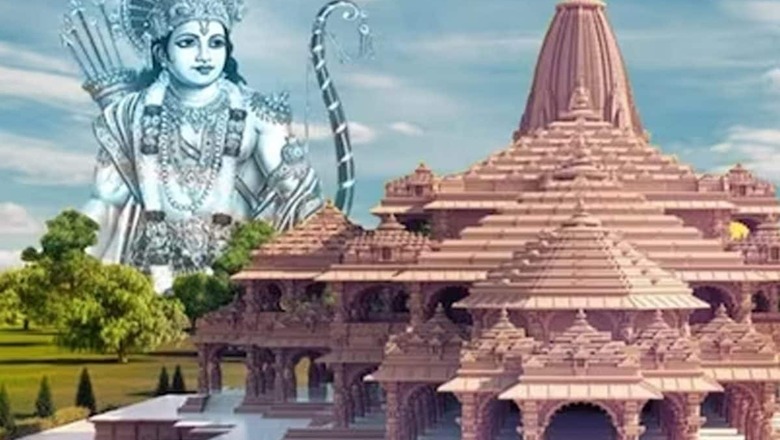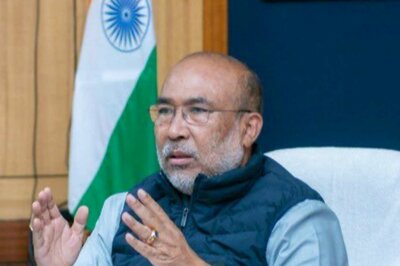
views
Bharat, a civilisation state, draws its sense of nationhood from a rich and enduring heritage. The grand narratives that have historically propelled countries to the zenith of global influence are no strangers to India’s own narrative. However, the educational system has been distorted to such an extent that even subjects like Yoga have become subjects of debate, causing an alarming disconnect with our own civilisational roots. This heritage, bestowed upon the world by our ancestors, is now being misused and often misunderstood by various segments of society, including the civil society, judiciary, and politicians.
By the Nehruvian state, this is by no means a critique of our first Prime Minister, Pandit Nehru. Instead, it highlights a collective failure of the state, responsible for misguiding and carefully nurturing generations of Indians, influenced by an ideology that glorified invaders and loathed natives, their cultures, and traditions. The distortion of history is a concern, deeply rooted in the appeasement politics of the Nehruvian state. The teaching of history has predominantly followed the language of invaders, despite more than seven decades of independence. Rectifying this deep-seated issue would require extensive efforts to initiate the process of decolonisation and address subconscious colonialism that impedes the nation’s overall growth.
The sanctity of Ayodhya as the birthplace of Lord Rama has been questioned repeatedly by leftist historians. The Ayodhya issue would have found resolution sooner if not for the influence of leftist ideologies on the Muslim intelligentsia. Intellectual dishonesty, as pointed out by Arun Shourie in his critique of leftist historians, permeates the narrative with an Italian proverb ‘Suppressio Veri, Suggestio Falsi’ (suppression of truth and suggestive falsehoods).
Meenakshi Jain notes in her book ‘Rama And Ayodhya’ that leftist historians kept on changing their goalposts on how much their lies got proven at any given point in time. Their first argument was that Babri Masjid was constructed at a spot where neither a place of worship, nor the site of any previous Hindu religious structure was there, nor was the evidence to associate it with the birthplace of Lord Rama. When the excavation showed that not one, but several pillars of Hindu temples were found at the Babri site, then they brought a new element that Ayodhya was known for Buddhist-Jain influence. There is only one word for this sophistry — intellectual dishonesty.
Another striking example of this disconnect was the case of Bharat Biotech’s COVAXIN, which faced unwarranted scepticism about its efficacy, primarily due to its name, ‘Bharat’. Despite being one of the most rigorously scrutinised vaccines globally, it continues to face scepticism that counterparts like Pfizer or Moderna did not encounter. Regrettably, even so-called “esteemed journalists” have played a role in promoting vaccine hesitancy without relevant expertise in medicine, research, or vaccination.
To emphasise the impact of the Bhagavad Gita, one can look forward to a Hollywood film directed by Christopher Nolan, where Cillian Murphy portrays J Robert Oppenheimer. This intriguing connection highlights how reading the Bhagavad Gita influenced one of the century’s most significant scientific breakthroughs. He famously quoted from the Bhagavad Gita after witnessing the first nuclear explosion on July 16, 1945. His words, “Now I become death and destroyer of the world” are powerful. Yet, today, promoting the Gita is often met with labels like “sanghi”, “bhakt”, and “fascist” with a reluctance to introduce it into classrooms, all in the name of “secularism” and “inclusivity”.
For India, the concept of a nation-state is not a recent development, as it is for Western commentators. Our revered texts like the Vishnu Purana, written around 900 BCE, define the geography of the land, emphasising a sense of nationhood that predates contemporary definitions.
The Purana defines the geography of this land. It says: उत्तरं यत्समुद्रस्य: हिमाद्रेश्चैव दक्षिणम् । वर्षं तद् भारतं नाम: भारती यत्र संततिः ।।
(The country that lies north of the ocean and south of the snowy mountains is called Bhāratam [India]; there dwell the descendants of Bharata.)
To achieve its rightful glory, India must address the neglect of its own ancient texts. These valuable manuscripts lie dormant in museums while resources are lavished upon Urdu and Arabic departments in various institutions. Biblical classes are introduced under the guise of “moral education” or “value education” but there is resistance to incorporating the Bhagavad Gita into educational curriculum, despite the book’s profound influence on many successful individuals.
While there may be disagreements about Mahatma Gandhi, it is worth noting that the Bhagavad Gita remained his constant companion until his last breath. To initiate the process of decolonisation, the government should establish a curriculum based on the Bhagavad Gita and transform moral education and value education classes, making it compulsory even in missionary schools. Such schools cannot have an independent curriculum that exclusively glorifies a book that has been associated with the persecution of various communities, including Jews.
This disconnect with our heritage extends to science and mathematics, with remarkable works like Bhaskaracharya’s Lilavati and the profound teachings of the Gurukul system of education. The modern education system, with its large teacher-to-student ratios, is a far cry from the 1:5 ratio of the Gurukul system.
Whenever films like ‘RRR’ or biopics like ‘Nambi Narayanan’ celebrate our heroes, a section of society is perpetually irked and begins a propaganda campaign to belittle these heroes. It’s essential to understand that the name ‘Rama’ is not just famous within India; it extends beyond its borders, transcending religious boundaries and cultural differences. Lord Rama, a symbol of righteous governance, is celebrated for his return to Ayodhya after defeating Ravana, not for the size of his kingdom.
To achieve the glorious heights India deserves, we must read and acknowledge the stories of our heroes, from Suheldev Passi to Lachit Borphukan, who single-handedly defeated the Mughals at the Battle of Saraighat. Our culture and civilisation are inherently plural, with unique regional interpretations of texts like the Ramayana.
In conclusion, awakening our social consciousness is essential for our progress, necessitating a change in education curricula to foster holistic development rather than manufacturing labourers and clerks. Delaying the process of decolonisation has dire consequences, as our cultural richness remains hidden under the guise of inclusivity, hindering our nation’s growth. It’s time for the political and civil classes to confront the rising wave of ‘wokeness’ and take the necessary steps to revitalise our society and education systems.
The author is a columnist specialising in Khalistani terrorism and external threat mappings for India. He posts on X at @DwellingDeep_. Views expressed in the above piece are personal and solely that of the author. They do not necessarily reflect News18’s views.



















Comments
0 comment